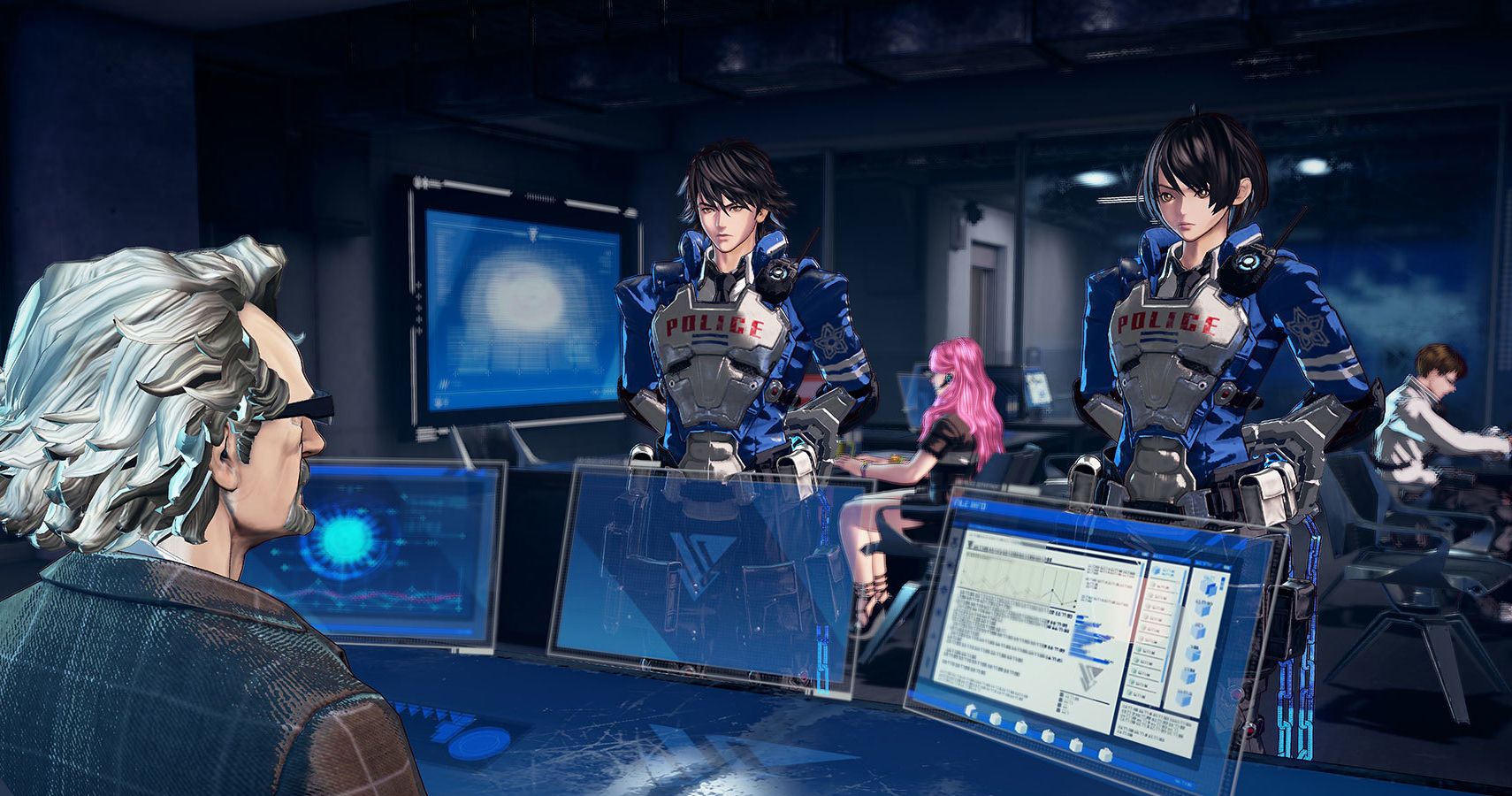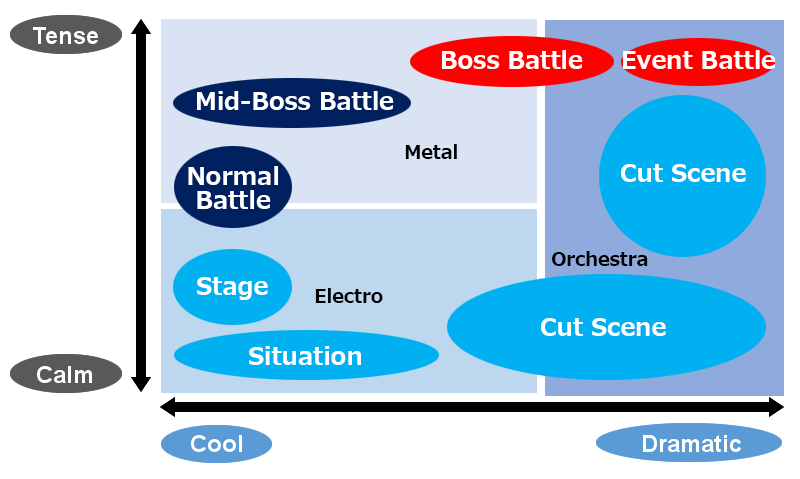Satoshi Igarashi, lead composer of Astral Chain, has detailed how music genre functions in his original score in the latest of a series of Dev Blogs posted to the PlatinumGames website. Fans of PlatinumGames’ distinct brand of weirdness should be delighted by the specificity of the details Igarashi provides about his compositions. He made graphs—plural.
The basis for Igarashi’s soundtrack is the implementation of electronic, metal and orchestral elements. He explains that electronic music signifies a sort of status quo, as the medium both emphasizes the game’s futuristic setting and provides a relatively softer musical palate. Heavy guitar-based metal therefore signifies a rise in tension. Igarashi first includes his score for a stage called Ark Mall, which he then contrasts with a guitar-heavy “Combat Phase” version of the same composition for the combat portions of the Ark Mall stage.
While this isn’t game design rocket science, Igarashi’s unique sensibility shines as he further details his process. In all of his compositions, regardless of genre, drum beats are mechanical and inorganic, continuing to complement the game’s future setting. His guitar, he explains, was tuned to a low G note, which, for the non-musically inclined, is seriously heavy. The lowest note in standard guitar tuning is its open E string; going backwards in the musical alphabet from E, G is nearly 5 whole steps down. Some the heaviest metal bands merely perform in C standard tuning, just 2 whole steps down. All of this to say, these guitars are heavy, man.
Orchestral music enters the picture when things get epic. The name of one of Igarashi’s sample orchestral piece is redacted, because to even reveal the title of the piece would spoil an element of the game (and, of course, a redacted song title is intriguing and builds hype for the game’s upcoming surprises). Orchestral elements are meant to heighten the raw power of general combat into the pure majesty of the game’s boss fights.
Things get interesting when Igarashi outlines how these genres meld with one another. Metal guitars can add intensity to an orchestral boss theme, for example, while a purely orchestral pieces underscores the drama of a major boss fight. Lost? He has graphs for that.
Igarashi has worked previously with PlatinumGames in the music departments of Bayonetta 2 and NieR: Automata, among others, but this is his first game as lead composer. In a previous post on the PlatinumGames blog, Igarashi also introduced two singers who will provide vocals on certain tracks, which will surely excite fans of the excellent vocal-based compositions from the studio’s past hits. PlatinumGames has a stellar track record when it comes to game soundtracks, and Igarashi’s quirky transparency and sample pieces suggest he’s poised to continue the same vein.


